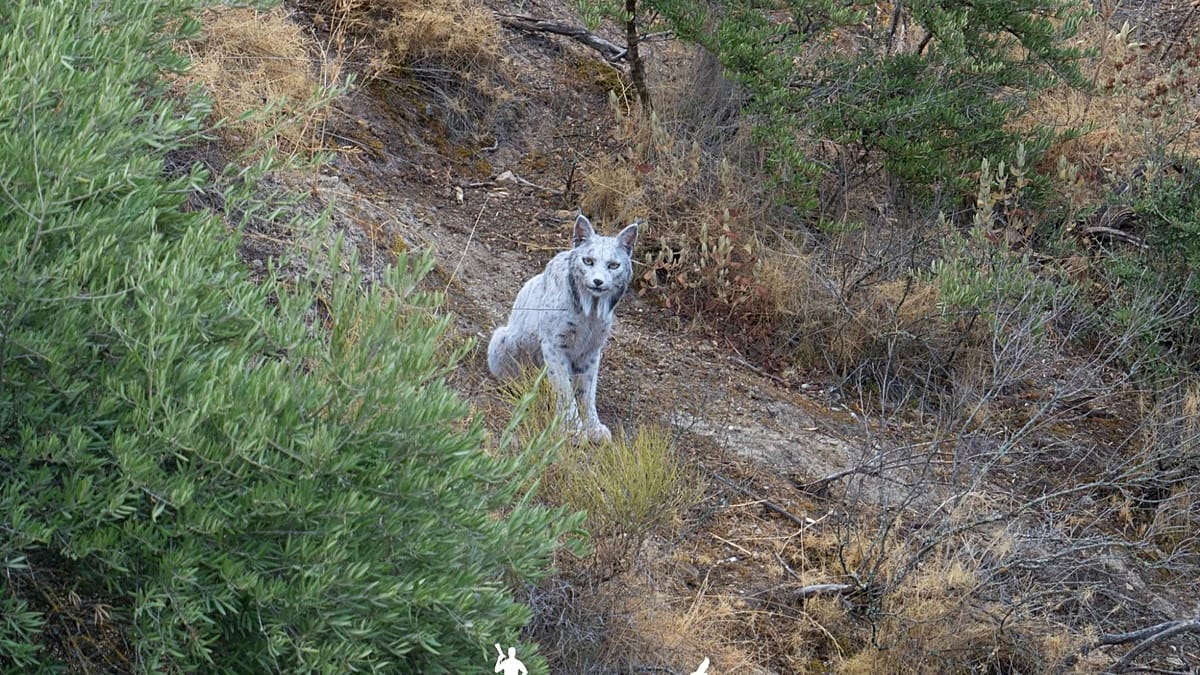The white ghost of the Mediterranean forest. This is how Ángel Hidalgo, an amateur nature photographer, has described his latest find while reviewing the images from one of his photo-trapping cameras, placed in the depths of one of Jaén’s mountain ranges in southern Spain.
Hidalgo has managed to record an Iberian lynx with leucism, a genetic condition that causes a partial or total lack of pigmentation in its skin, although not in the eyes, as would occur in the case of albino animals.
According to local media ‘Ahora Jaén’, this unprecedented discovery took place on 22 October in the province of Jaén.
The place where this specimen of ‘Lynx pardinus’ has been recorded in the wild, as attested by the absence of a tracking collar, is kept secret. The Iberian lynx, despite the conservation efforts of the Spanish and Portuguese authorities, is still listed as “vulnerable” by the International Union for Conservation of Nature.
The Spanish Ministry of Ecological Transition estimates that the animal’s population exceeded 2,000 in 2023, spread across the two countries of the Iberian Peninsula.
The animals have spread to geographical areas such as Sierra Morena, the Montes de Toledo, the Spanish-Portuguese Guadiana basin and Doñana, as well as other places where they are being reintroduced that would have been unthinkable until a few years ago, such as the Sierra Palentina.
Endemic only to this region, this big cat is essential for the ecosystems of the Mediterranean landscape and its food chain, as it is a predator of rabbits, its main source of food.
If it were to disappear, it would overpopulate the next level up in the chain and unbalance the whole, given the lack of competition between the two species.

